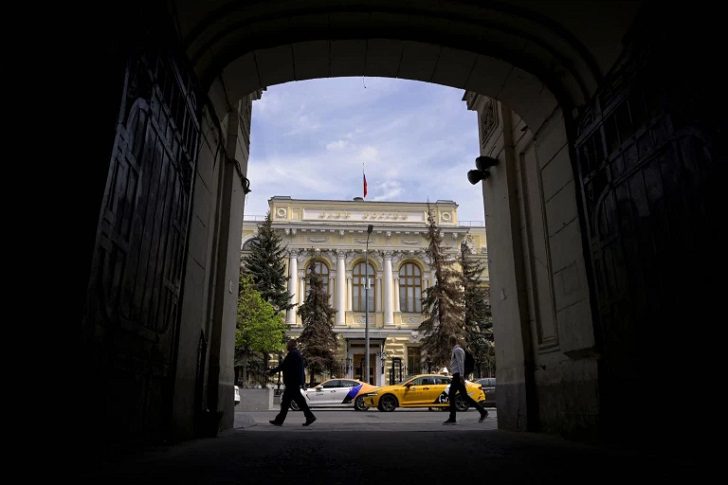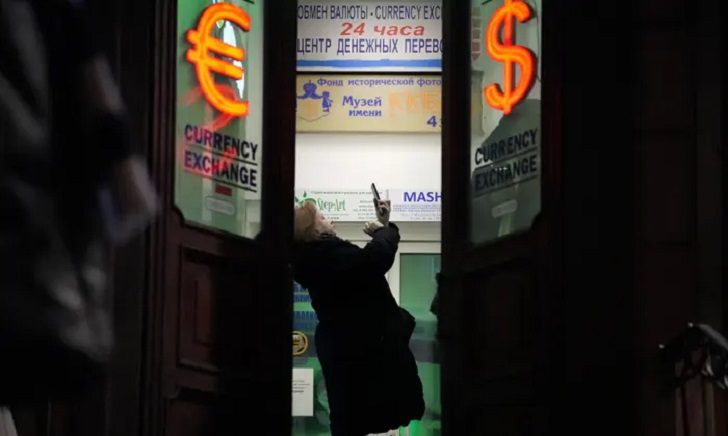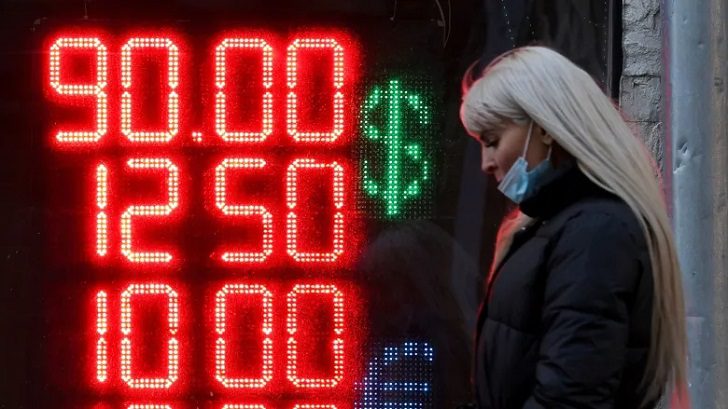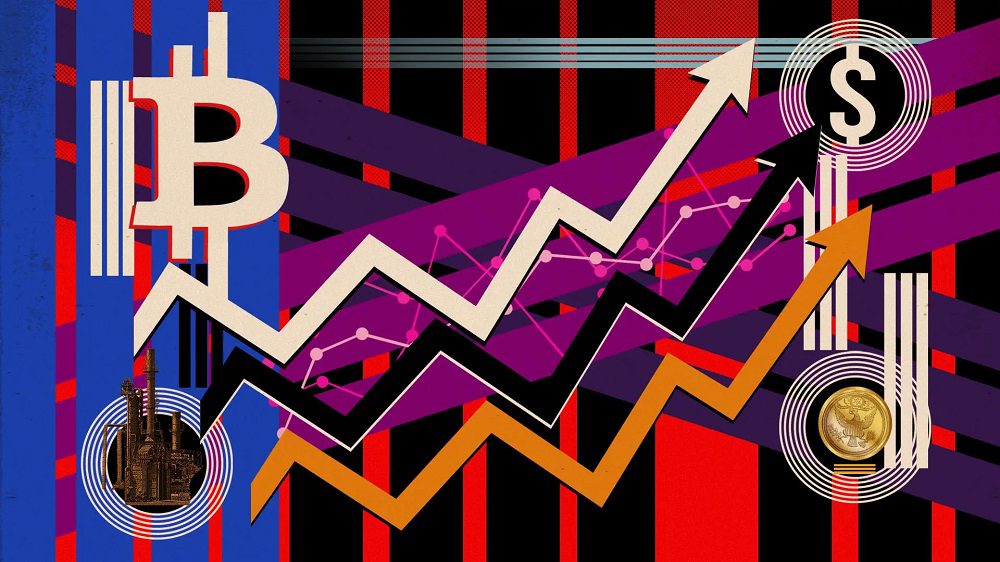Six months after President Vladimir Putin's invasion of Ukraine, there is still a shocking lack of knowledge among many western officials and observers regarding the economic implications of the war and what they have meant for Russia's positioning both domestically and internationally.
International sanctions and voluntary corporate retreats have severely impacted Russia's economy, contrary to popular belief that they were ineffectual or unsatisfactory. The deteriorating political environment Putin is confronting has been complemented by the weakening economy in a potent but underestimated way.
Vladimir Putin has portrayed Russia as a hegemonic force reasserting its legitimate claim to imperial glory in order to justify invading Ukraine. However, even before the invasion, Russia's economic resources hardly sufficed to support an empire.

NATALIA KOLESNIKOVA/ AFP VIA GETTY IMAGES | The Russian ruble has crashed to a record low after the invasion of Ukraine as sanctions bite
Now that foreign sanctions are the cause of a collapsing Russian ruble, Russia's economic situation has gotten even worse. With a gross domestic product (GDP) only slightly greater than Ohio's, Russia's economy would rank 22nd in the world if evaluated at current exchange rates.
Putin 'destroyed' the ruble
Russia has made it illegal for its citizens to purchase U.S. dollars, completely isolating an economy that once had aspirations of joining the world's financial superpowers. Vladimir Putin, the president of Russia, and his aides had been promoting the ruble as a possible substitute for the US dollar and arguing that it should be an essential component of the international financial system as late as the 2008 financial crisis. They predicted Russia would eventually rank among the world's top five economies.

Dmitri Lovetsky/ AP | Rich Russians are buying luxury jewelry and watches as the ruble flounders
What little remained of Putin's economic aspirations has been destroyed by his war to dominate his neighbors, which began with his 2008 invasion of Georgia and continued with his annexation of Crimea in 2014 and his invasion of Ukraine last month.
Early in 2008, one US dollar was equivalent to about 25 rubles. Since then, the value of the Russian ruble has decreased substantially, and sanctions implemented by the West in reaction to the invasion of Ukraine have caused it to collapse. After the ruble lost 10% of its value and hit a new record low in March, one U.S. dollar could only buy 117 of them in Moscow. This week, the offshore market for the ruble has seen an even greater decline.
Effects on ruble when West tightened sanctions

Andrey Rudakov/ Bloomberg | The ruble has lost half of its value
After the U.S., European Union, and the United Kingdom announced actions to block some Russian banks from the SWIFT international payment system and to restrict Russia's use of its enormous foreign currency reserves, the ruble decreased by about 30% against the dollar, becoming worth less than 1 U.S. cent. Over 11,000 banks and other financial institutions worldwide use the system to transfer billions of dollars back and forth.
After the Russian central bank abruptly increased its benchmark interest rate to support the ruble and stop a bank run, the currency made gains. However, it was trading at a record low of 105.27 per dollar, down from around 84 per dollar.






